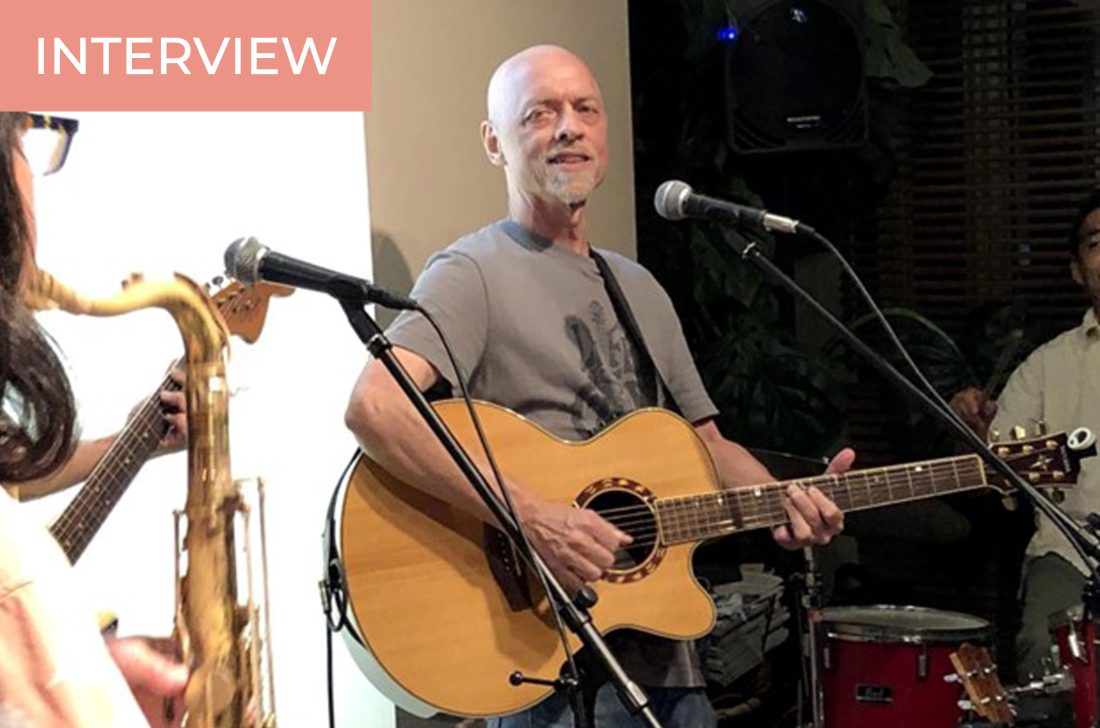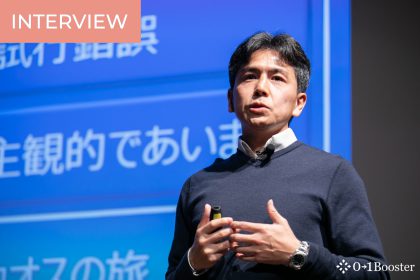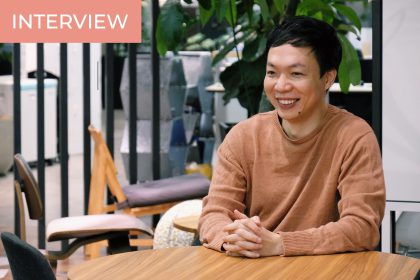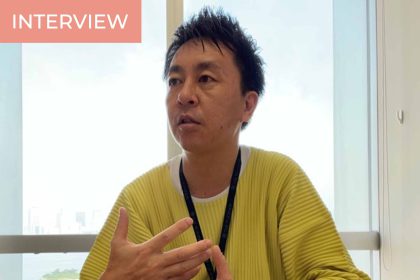Tim Sullivan, Japan-based cross-cultural educator, storyteller, and prominent expat voice on LinkedIn, has never been shy about openly sharing the joys of (semi-)retirement. Tim’s life is framed by Japan, from his formative youth to his golden years, enriched by cross-cultural business consulting experiences in North America and Hawaii in between.
After getting to know Tim over the years, I couldn’t help but notice how much we had in common: everything from aspects of our careers to our attitudes toward life in Japan. As I enter my mid-40s and start to consider what my own cross-cultural retirement might be like, I realized that Tim would be the perfect person to approach for a discussion on this topic. Fortunately, we’re bringing you, Kokoro Media readers, along for the ride.
Read on for a candid conversation on the following topics and more:
- Tips for maintaining authenticity while respecting cultural norms
- The challenges and joys of being an ambassador for your culture
- The pros and cons of retiring in Japan
- Advice and key points to consider for anyone thinking about retiring in Japan
Cross-Cultural Education, Personal Branding, and the Power of Storytelling
It’s about finding your cross-cultural sweet spot where you can balance being your authentic self while making strategic adjustments to make connections and bridge gaps.
Cross-cultural education is a popular line of work for expats in Japan. What does cross-cultural education mean to you?
I was into Japan before it was cool. I came here in 1977 before anime and Japanese pop-culture took the world by storm. I studied Japanese at Waseda University for one year, and then I went to ICU [International Christian University], where I bumbled into cross-cultural communication.
Unlike a lot of the expats here [in Japan], 95% of my work since 2001 was in the United States. Like you said, coming back to Japan and being on LinkedIn, I see so many people now in the cross-cultural communication field. We need as many people doing that as possible, so I’m happy about that. However, it’s hard to stand out if everybody’s got that title.
As for me, I had a problem with cultural anthropology because it was so cryptic and filled with jargon. I was motivated to figure it all out, though. I trudged through all the jargon and learned how to practice cultural anthropology in the mixed-culture business world. Management in manufacturing was my bread and butter. I made cultural anthropology work for non-academics—people who worked in the factory or white-collar folks who had never studied anthropology. I’m a storyteller: I try to keep things fun, light, and positive.
Overall, cross-cultural education is not only about understanding other people. It’s also about understanding yourself. In fact, you have to understand yourself first. It’s about finding your cross-cultural sweet spot where you can balance being your authentic self while making strategic adjustments to make connections and bridge gaps.

I’m the old baby boomer screaming at people to get off my social media lawn. Again, it’s all tongue in cheek, but there is some truth to it.
You’ve done some eye-catching personal branding on LinkedIn, describing yourself as a “cross-cultural curmudgeon” and a “bull in a ramen shop.” What is the story behind these descriptions?
Actually, I never consciously aspired to brand myself. That was just an unintended consequence of looking for a way to communicate my personality. I wanted to make people smile or think, and I just didn’t want to simply put “cross-culture specialist” as my title.
The “curmudgeon” part is tongue in cheek. It’s partly related to my age. I’m 65, so I’m the old baby boomer screaming at people to get off my social media lawn. Again, it’s all tongue in cheek, but there is some truth to it. At my age I no longer suffer fools gladly. Curmudgeon sounds mean, but I truly try to never be mean to people. However, if somebody isn’t adding to my life, helping me become a better person, or inspiring me, I just don’t have time for them. I’d rather focus on people I can connect with—people smarter than I am and people with different experiences. If someone is a troll on my LinkedIn feed, I just block them. I don’t say anything, and I don’t argue with them—they’re gone. That’s my kingdom. Different opinions are welcome. However, if you’re going to jump in my social media feed and be a jerk, I just don’t have time for that.
So, in certain situations, I occasionally break the rules. I know the rules before I break them, though.
As for “bull in a ramen shop,” that’s obviously a play on the “bull in a china shop” expression. “Bull in a ramen shop” actually comes from some lyrics I wrote for a song that I haven’t yet recorded: Old Boomer Dinosaur. The purpose of that expression is to reference the fact that I’m a foreigner living in Japan. I’m trying to be my authentic self and adjust, but it also implies that I judiciously break the rules if there’s a strategic, positive reason to do so. For example, sometimes, because I’m a foreigner, I’ve had Japanese people ask me to break the rules to help them. They would say, “We can’t say this to the boss, but you can. Would you do that for us?” So, in certain situations, I occasionally break the rules. I know the rules before I break them, though.
Speaking of stories, you also “connect people through storytelling.” How does storytelling play a role in cross-cultural education?
This goes back to how I hate cryptic jargon. There are a lot of abstract concepts that are either boring or difficult to grasp without context or a story. There’s a fantastic book called The Storytelling Animal that talks about how storytelling is really what makes us human. The role of storytelling, throughout history, is to transmit culture. Before we could write, we told stories. Any culture can relate to stories.
I believe storytelling is especially effective in Japan. My professor once described Japanese culture using the term “radical empiricism,” which means if you can’t see, smell, taste, touch, hear, or experience something, then it’s just kind of out there and hard to grasp.

I got into storytelling in Japan through rakugo [traditional Japanese comedic storytelling]. In telling these stories, you instantly feel the humanity and the connections. That is how I naturally evolved in the educational field. I had abstract concepts I wanted to get across, and I would figure out what could bring these concepts alive so people would understand them, laugh, and recognize the humanity in all of us.
Japan or Elsewhere: Advice on Selecting Where to Settle
One of the more practical reasons for retiring here is the healthcare system.
What led you to consider retirement in Japan?
I’ve always loved living here. I first lived here through the 80s—that’s the foundation. I have a genuine fondness for Japan. I maintain 40-plus-year relationships with Japanese and foreign friends. So retirement here was always a possibility. On top of that, my wife is Japanese, and my son lives here. And now, I have a granddaughter here.
One of the more practical reasons for retiring here is the healthcare system. I’ve experienced the American system, and I don’t have many good things to say about it. I was paying $1,000 a month for really bad healthcare. Although America is home to some of the best doctors in the world, how many people can afford those doctors?
The older I got, the more I realized what could go wrong with my health. There are criticisms of the system here in Japan—variation in the quality of service, for example—but I can tell you that the system here is lightyears beyond the American one.
The other practical reason for retiring here is my mother-in-law. She’ll be 92 this year. So, we came back to Japan to take care of her and spend time with her as she reaches the end of her life. After all, my wife spent 30 years living in America with me, the barbarian [laughs].
Overall, Japan is simply a pleasant and convenient place to live. For me, it’s cheap to live here. It’s much more affordable if you live outside of Tokyo or other major urban areas. I live in Atami. It’s a compact town, so I don’t need a car. That’s one fewer bill to pay.

By assuming an ambassador role, you can win hearts and minds, one on one, through relationships and by not fulfilling the negative stereotypes that Japanese may have of foreigners.
I occasionally see online debates about the best place for expats to retire: their home country—in our case America—or Japan. Naturally, the answer depends on the individual. You’ve explained some of the joys of retiring in Japan, but can you also share potential downsides?
Japan isn’t for everyone. If you’ve never lived in Japan, it’s probably a bad idea to retire here—even if you could get a visa—because you wouldn’t know whether this is the right place for you. This doesn’t make you a bad person. You just might have a different personality that is better suited to another country.
Retiring in Japan is similar to living in Hawaii. A lot of people move there to retire, and then, after a year, they move back because they miss their family. They couldn’t see their grandchildren on a regular basis, for example.
Also, if you don’t speak Japanese and understand the culture, you’re going to be lost. You’re going to be overdependent on others, which will be difficult if you have an independent personality type.
Lastly, there’s rigidity in the culture here. You have to adapt or at least learn to tolerate some things you might perceive as negative. Japanese people are often accused of being racist or bigots. But I don’t think it’s about race. Xenophobic is a more accurate word to use.
However, I think you and I can agree that 99% of the time, this sentiment is driven not by malice but by ignorance. And ignorance is easy to deal with. By assuming an ambassador role, you can win hearts and minds, one on one, through relationships and by not fulfilling the negative stereotypes that Japanese may have of foreigners.
You can change people’s perceptions, and what a powerful thing that is to do. It’s wonderful to be able to contribute to the world in this way: taking this situation as a challenge rather than complaining about it and doing nothing. If you can’t get into that mindset, then Japan might not be the place for you.
What about some of the structural issues that Japan is facing, such as ballooning national debt and a shrinking, aging population?
I don’t feel like I’m affected by the structural issues at the moment. Of course, I’m on the way out [laughs]. I understand there are longer term consequences. But on the other hand, I know that when my granddaughter comes of age, she’s going to have lots of job opportunities. I’m not saying this is good for the big picture, though.
Another structural issue is how tough it is to get a visa. If you’re married to a Japanese person, it’s not a problem. Otherwise, you have the challenge of figuring out how you can legally stay here. You may need to hire an immigration lawyer to help you figure out your options. This may be expensive, but it will be more effective and save you a lot of time.
And what about the pros and cons of retiring in America?
For starters, we can consider the other side of the things that I mentioned earlier: you’re going to be closer to your family, for example. On top of that, you generally have more freedom—not only your rights but also the ability to wander and roam freely.
Currently, one con to retiring in the States is inflation. I know you can say the same thing about Japan, but I’m getting paid in Social Security dollars, so I’m enjoying the weak yen, which more than offsets the inflation rate here. Right now, it just seems so expensive to live in the United States, especially in the big cities.
Lastly, I think the American Social Security program is better than the Japanese equivalent. I get a lot more from Social Security than what my friends receive from the Japanese system. Additionally—and this just shows my ignorance—shortly before I applied for Social Security, I discovered that my wife was also eligible for benefits. She gets an amount that’s over half of what I receive. If you are an American, you can receive this income regardless of whether your spouse ever worked in the US.
Parting Thoughts and Advice on Retiring in Japan

As we wrap up, what advice do you have for those who have made the decision to retire in Japan?
For those planning ahead, check out Ben Shearon’s work [RetireJapan]. He’ll give you the nuts and bolts about preparing for retirement—all the stuff I don’t know [laughs].
Lastly, should you retire in Japan, get involved in a constructive activity and don’t just stay in the gaijin bubble. I have a lot of foreign friends, but most of the time, I’m immersed in Japan. I speak Japanese with my family and local friends all day. You’ve got to get out and embrace the culture and learn. I think you’ll have a fulfilling retirement if you do that.
Top photo credit: Richard Berger




